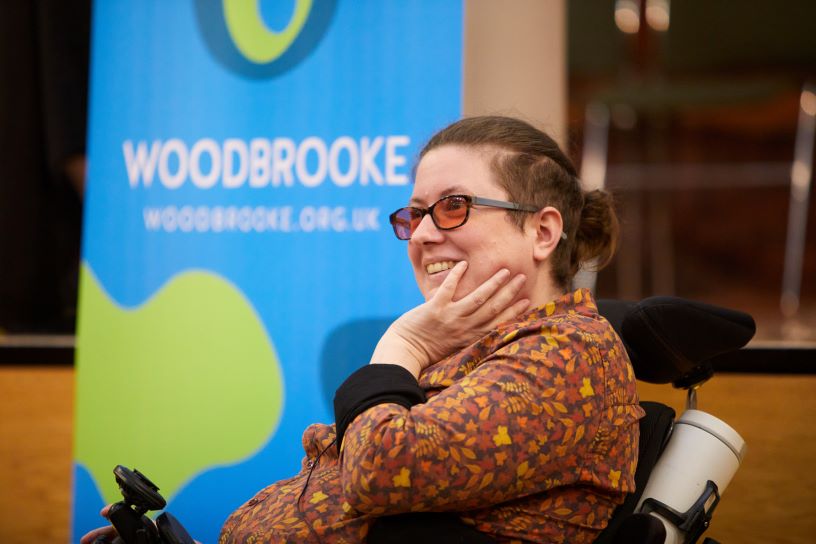Swarthmore Lecture: How can we change society?
Society can only be truly inclusive if difficult conversations are held to create better spaces and structures, Esther Loukin told Quakers at this year's Swarthmore Lecture on 29 April.

Co-founder of “Reasonable Access", Loukin is known for her activism holding organisations to account on disability access.
She was asked by Woodbrooke, the international Quaker learning and research organisation which organises and funds the annual lecture, to deliver it this year.
A wheelchair user herself, Loukin, of Hartington Grove Meeting in Cambridge, sees her access needs as part of her witness to truth, and is led by the Spirit to effect change.
She echoed Carol Gardiner in Quaker faith & practice, saying: “If we really mean that there is that of God in everyone, then it behooves us to look with creative, loving imagination at the condition of every human being."
Loukin has followed the legal route in her activism because it suits her physically and mentally, as she discovered when she challenged the small independent shops near her home to allow her access.
The Equality Act 2010 should protect wheelchair users in this situation, along with the Disability Discrimination Act in 1995, and can only be enforced by people who experience discrimination.
But after over a decade of asking none of the shops even bought a portable ramp for less than £50 for the single steps into the shops.
Loukin instigated a civil case which took years, but then: “Loads of new ramps appeared – not just the shops I had challenged but all over the city and further afield. And now, when I or others raise an access issue, it is likely to be fixed."
Initially Loukin was hijacked by emotions, she told her audience, doubting her own truth and becoming wrapped up in irrelevant details.
But experience, and solidarity with others, have honed her ability to handle these cases and to recognise strategies used to maintain the status quo, including being asked to engage in debate, or be reasonable.
Loukin touched on many areas including the state's characterisation of disabled people as unreasonable and the use of excluding language in the Quaker book of discipline, Quaker faith & practice.
“What do you, what do we, need, to ensure that we are able to flex our 'creative loving imagination' muscles, both towards ourselves and those around us?" Loukin asked.
Loukin is currently undertaking a law conversion course with a view to becoming a barrister. “I believe in better spaces and structures," she said. “They enable everyone to thrive."
Workshops will be held on the issues raised in the lecture and contribute to a book on the lecture to be published in the autumn